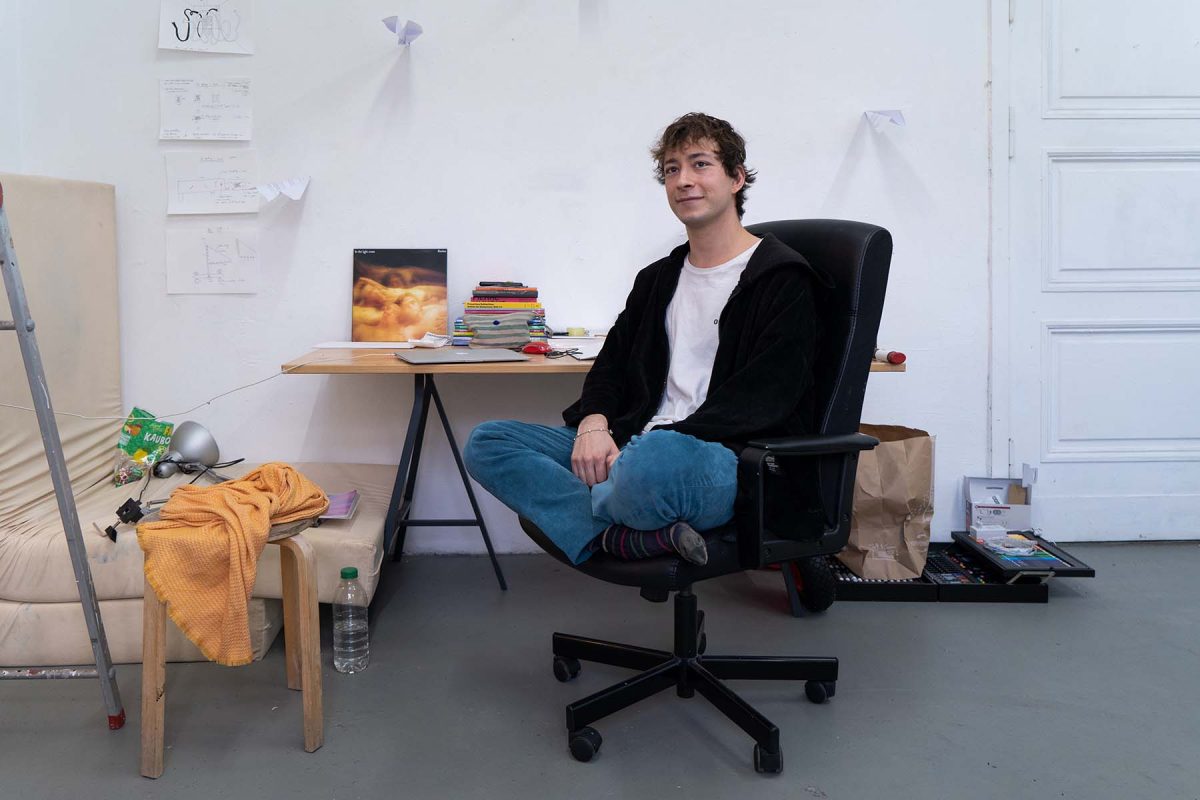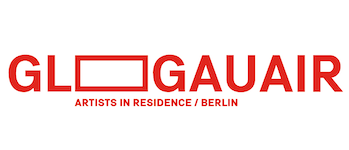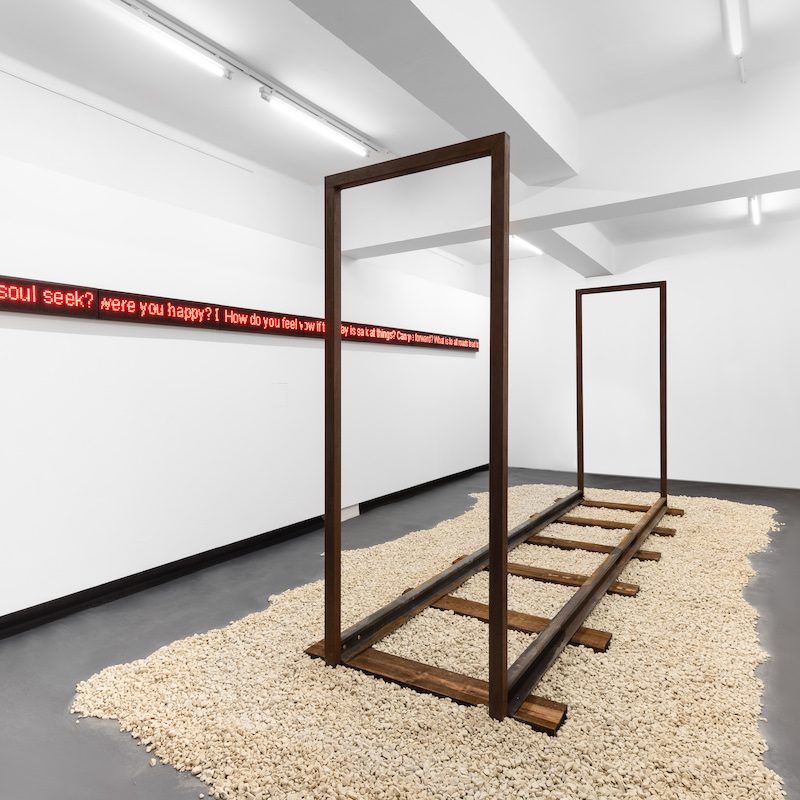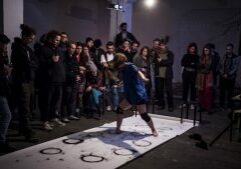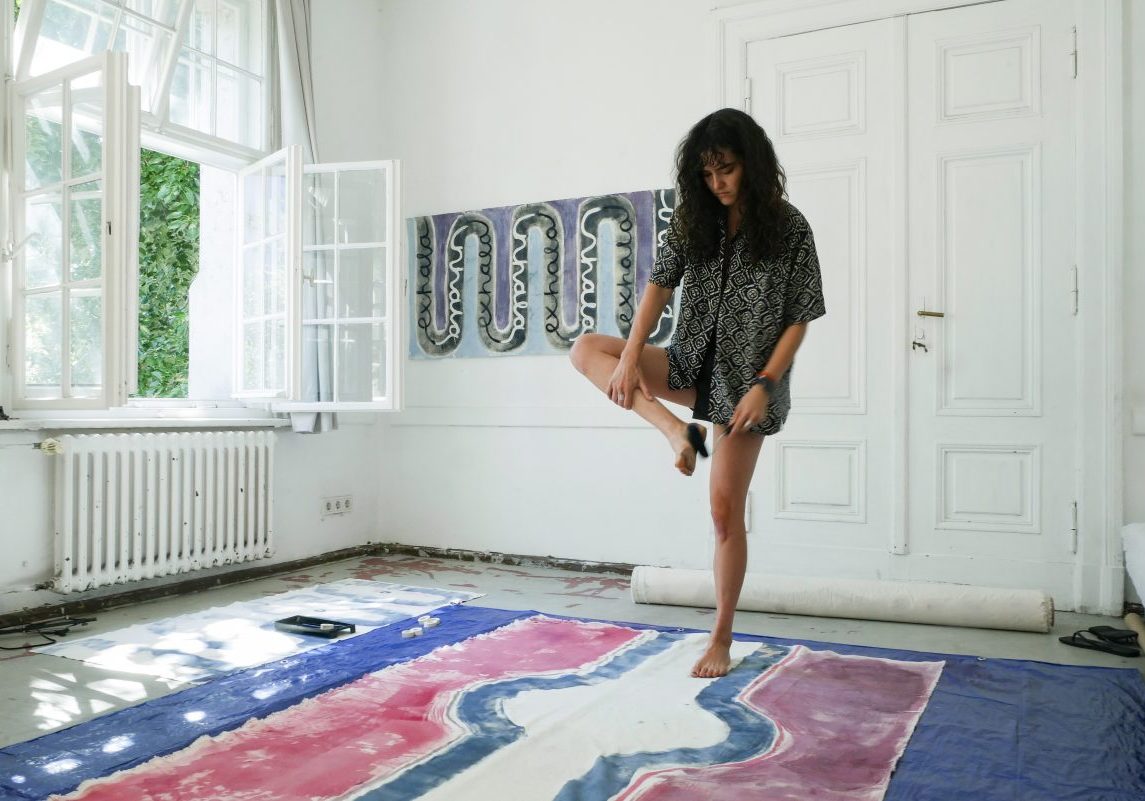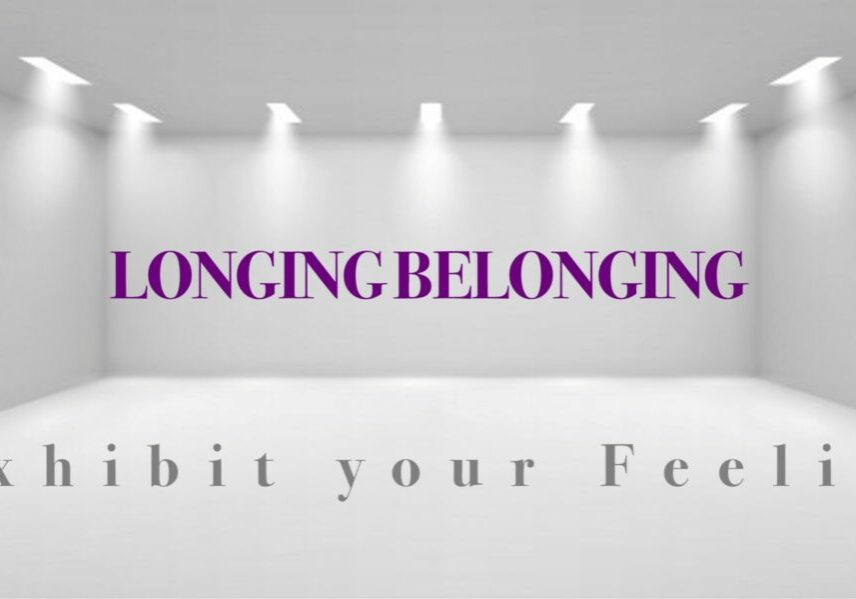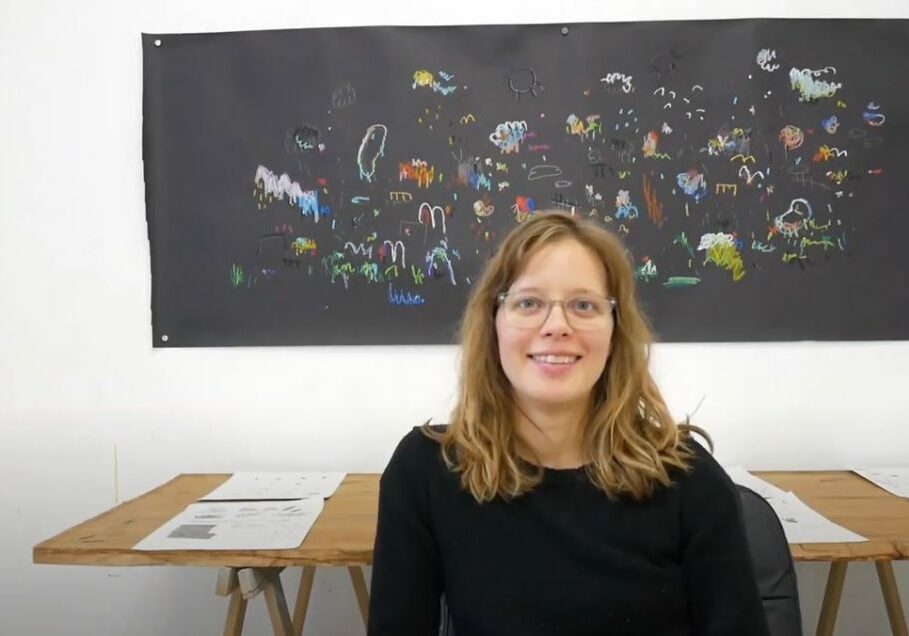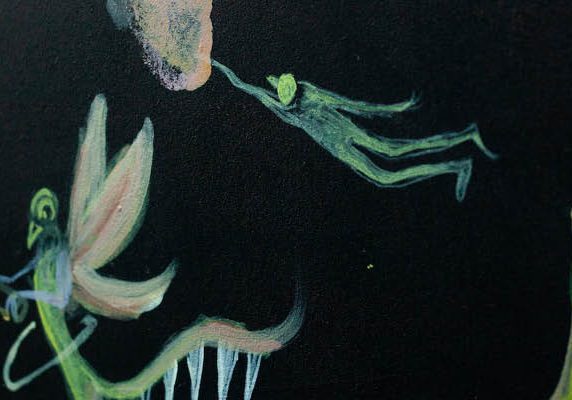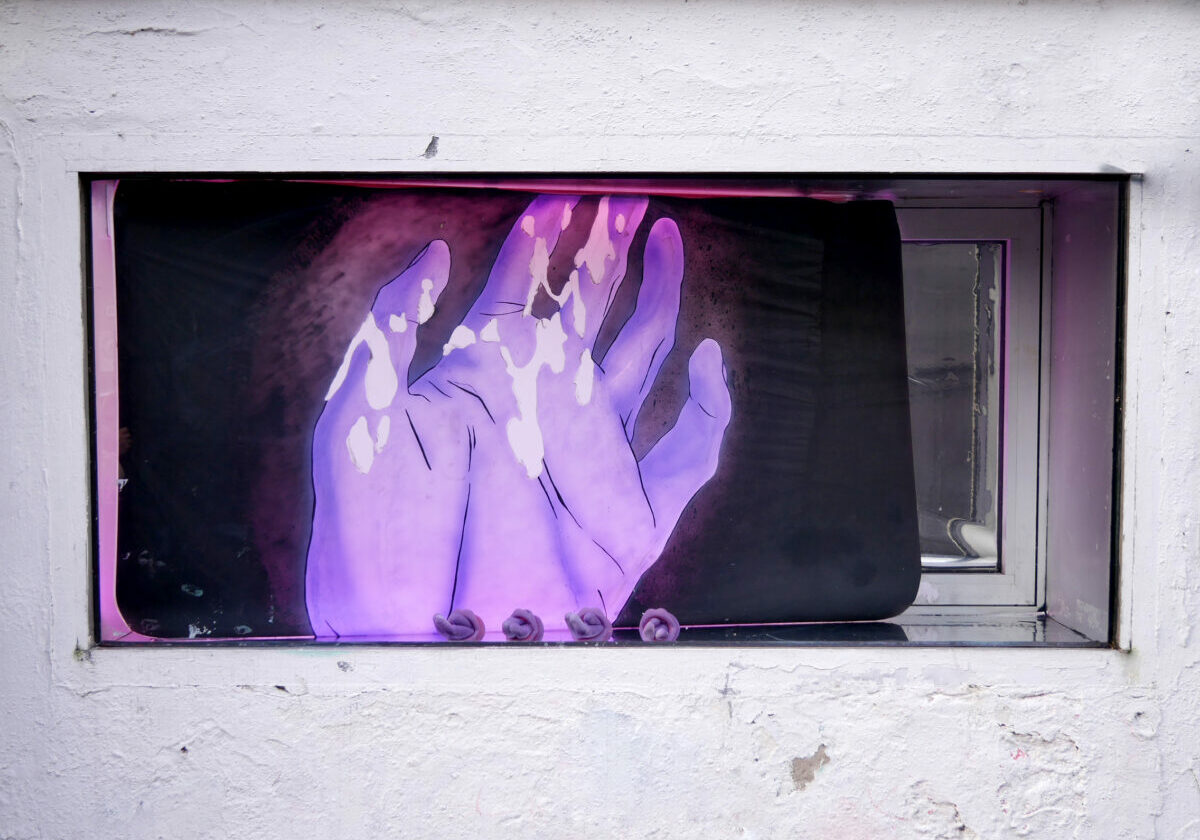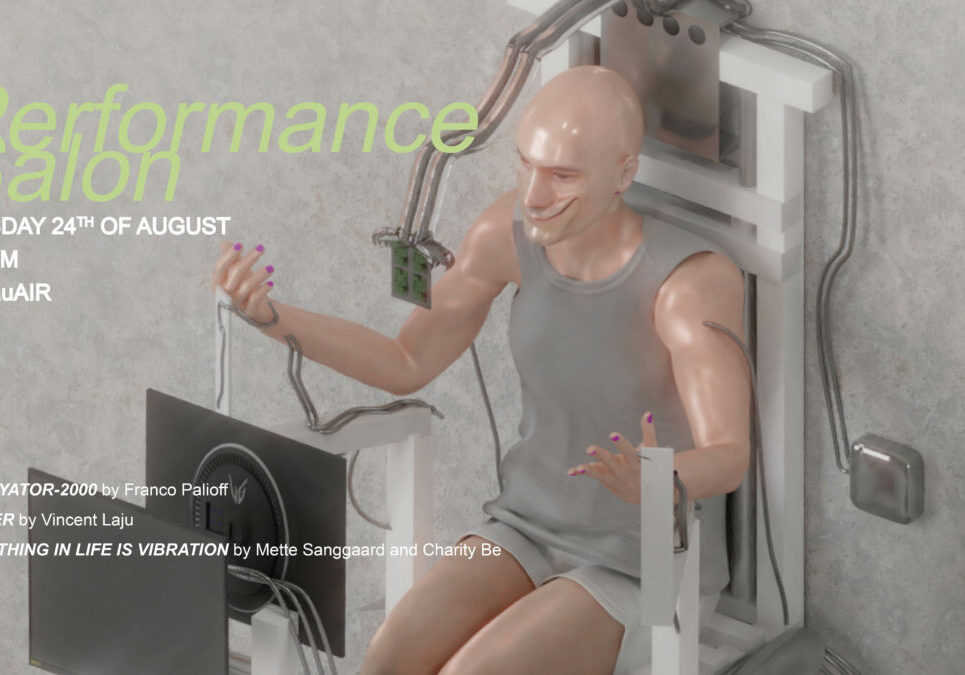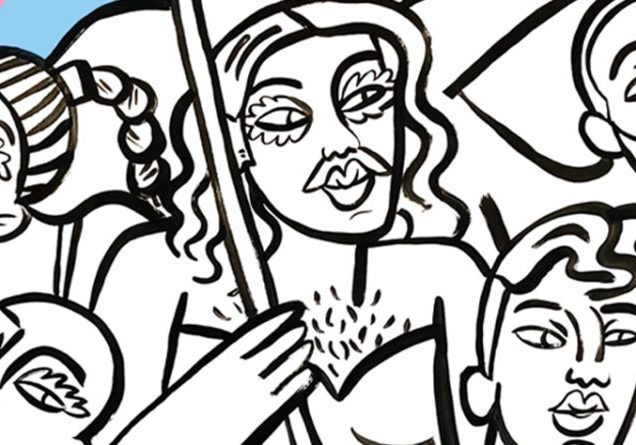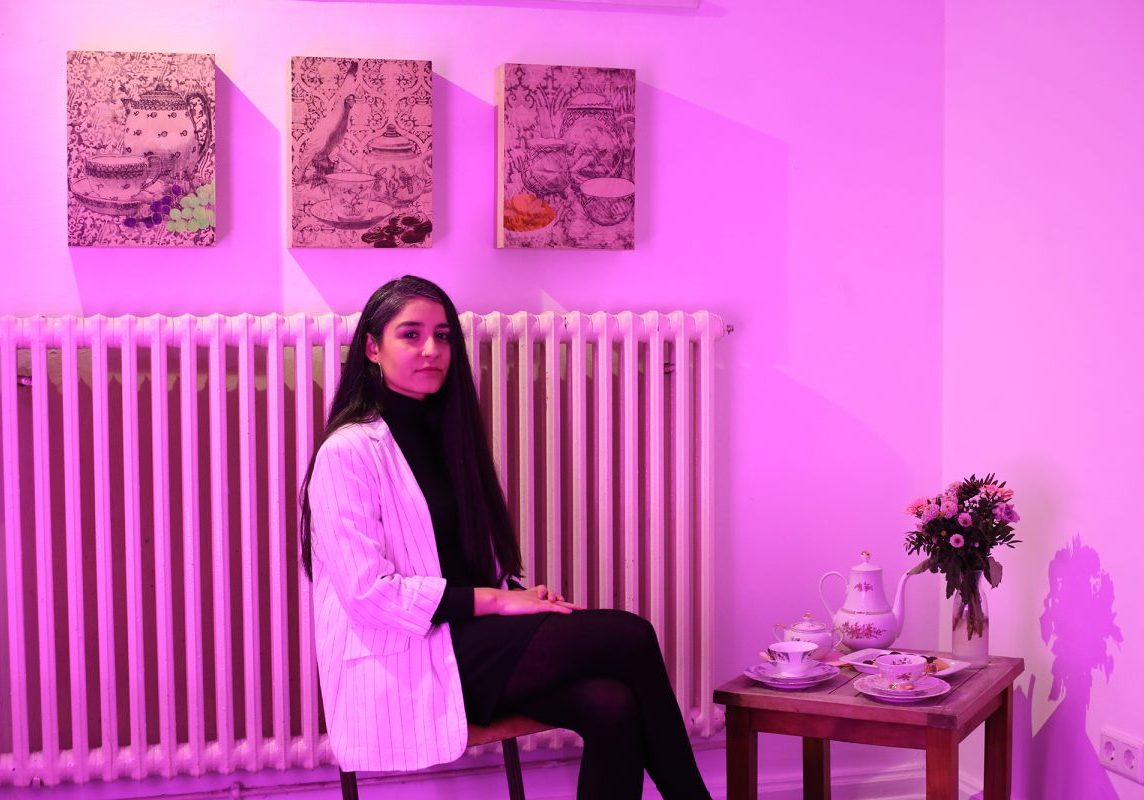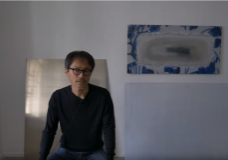Meet the Artist // João Motta Guedes
Introducing João Motta Guedes, a conceptual artist from Portugal who explores themes of freedom, vulnerability, love, and violence through various artistic mediums such as installation, sculpture, photography, drawing, and poetry. His work reflects on life as a metaphorical journey, aiming to uncover and share human experiences and emotions.
During his residency in GlogauAIR, he delves into the tensions within rave culture in his project “No feeling is final”. In it, he investigates power dynamics and intimate relations amidst extreme freedom and violence, exploring a wide range of issues including love, sex, drugs, freedom, and vulnerability.
How do you describe your practice as an artist?
My name is João Mataguedes, I’m a Portuguese artist. I’ve done my studies in fine arts but also have some background in law studies from a more philosophical approach. For my work, I usually have a very project-oriented scope. I start from ideas and from these ideas I try to understand how they can come to the real world. So the medium kind of changes very often according to the project I’m working on. I feel I have natural inclinations to sculpture and installation and doing things with words, either in a poetry form or just sentences that I found that have some poetic meaning and try to bring them into a visual form. So in terms of subjects or topics that usually my work falls into, I think it’s like the ideas in a very general way about love and vulnerability and freedom and how these subjects and topics can somehow constitute a poetic discourse on life and about life. So I feel at the core my work is really about a poetic view on the world.
What inspires your work?
I think life gives me all the fuel that I need to create stuff because inspiration just comes from people you meet, conversations you have, places you go, other artists that you discover. I want to translate life in a poetic way to the world or into a more broad manifestation in a work.

How did your artistic journey begin?
As I mentioned, I did law before, so that was my initial education. But I was always very connected to the arts from my family point of view but also my inner way of expressing myself, which at the time was mainly through poetry and writing.
Eventually I came to a point in my life, maybe after graduation, I was not really happy about what I was doing and my possible future. So it just came naturally to start or to dig more this path of what it means to be an artist and what it means to create. And I discovered that that is really what I want to do with my time and with my life and what makes really sense with the person that I feel I am.
I think writing was my first medium since I was a young teenager. Drawing came afterwards because I decided I didn’t want to be connected with law anymore and wanted to explore the world of visual arts from an education point of view. So I started just pulling the string of this novel and just as long as I kept pushing, more things started to unfold such as other mediums that you can try, such as drawing or painting or sculpting or ceramics or whatever.
That’s why I also feel that my work is not really tied to a specific medium. And I feel like in a way having this law background contributed for me to having a very conceptual, project-based, analytical research project about the ideas that I have.
My family is also connected with the artistic world and always brought me to see exhibitions and country events. As an artist, it is very important to be curious and to continuously do research about what is going on. I think all art is conceptual, even painting, because it’s a mental thing because it comes from a conscience, it always fits a feeling. Even if it’s intuitive and you’re just painting what you’re feeling, that’s the concept.
For me, it’s not necessarily being too tied to a formal concept, for me it’s something that is mental, it requires some sort of thought or emotion. And sometimes there’s physical repercussions, but for me it starts as a thing in the mind or in the feelings.
In my work there’s this concept or idea which is very central to the project, but I also like or try not to be too tied to it because I don’t want my work to be unilateral. I want to have the potential of many meanings, so it’s always kind of a challenge to try balancing that between what I do and what I want to say and regardless of what people will understand, I don’t want at all to force one meaning or one intention. I want them to be open to what each one may discover in it.
Do you have any memorable anecdote or story from your artistic journey that had an impact on you?
I never wanted to be a lawyer. But I think it was just something that suddenly made a lot of sense in my life, just to understand that this is what I wanted to do and that I wanted to spend my energy in. That was so clear, even though it sounds kind of an abrupt transition from one field to a very distant field.
It just made sense with who I am and who I wanted to be at the heart. I feel like some life experiences probably contributed to this. Some travels I did in South America at the time I was finishing my degree and I was trying other things.
I feel like, in a way, rave and party culture, which is the theme that I bring to my project here at GlogauAir, also influenced me quite a bit in a way. Not just about the environment, but about this idea of liberation and self-discovery.
On the other hand, recently I had my first big solo at a commercial gallery. It was a big challenge, because obviously it was the first, but I had this very clear view or idea of what I wanted to do. The exhibition is precisely about the journey and the way forward. It’s been some years now, like four or five, but coming from this background into another thing and wanting to pursue this other path, it made much sense for me that my first solo with my gallery would be about the path or the journey in this both physically and interior thing. So I was very sure that I wanted to preserve that kind of work.

How do you see the role of contemporary art in today’s society? How does your work have to do with this? Do you see yourself in a contemporary art market?
I feel that the contemporary art market is a different thing from the kind of contemporary art that really shakes you up. And what my work in general pursues is to be something that can question you. For me, a good work is not the one that gives you answers, that you just keep looking at and seeing more and more. Contemporary art is obviously very important to us as humans. Art has a really important connection with society and with the times that we live in.
And I feel in general contemporary art, especially in this timeline and with these very hot topics that are present, sometimes people try to repeat this idea of just revealing what is not going too well with our world, by denouncing some situations of injustice or systematic violence.
And even though I feel like as an artist it’s very important to be aware of the world that you are living in, it’s also much about showing your inner world and how these two worlds coexist. So for instance, in my work I try not to manifest too many political views or political ideas. So I try to bring a multitude of possible directions and try to maybe show a more utopian, oniric, poetic view on the world rather than perhaps this path of denouncing and criticizing, which is obviously legit, because in contemporary art there is room for everything. Maybe I like to focus more on pointing the direction in a more optimistic way.
Do you feel like the city of Berlin is having an impact on your work?
Coming here to GlogauAir made total sense for me and my project which conceptually is about raves or, to be more specific, about this environment that holds so much polymerised ideas such as a space for freedom and dancing and ecstasy and love, but at the same time it is an environment that can be very oppressive.
So I felt I was very interested in seeing how these two elements could coexist in such a paradox and taking this to a more poetic or in-between realm idea, so the concept of being awake but also being dreaming at the same time.
For me, this is obviously something that had a huge influence on my personal growth in the past, and the way I see life and work. So it just made total sense about addressing these issues here, in Berlin.
One of the things that I like most about Berlin There is a lot of culture, everything is always happening at the same time. What fascinated me the most is how these different fields of the arts; fashion and music and architecture and visual arts and cinema, influence each other. It is something very interesting and for sure that makes the city even more appealing to be in the middle of this creative tornado.
How is the residency and living with other artists affecting your work?
I feel like in general artists are like sponges, they just absorb what surrounds them and being able to be in the residency offers the opportunity for you to be in a daily contact with other artists which are also discovering the city, also working on their projects and obviously having these people so close to you, living together, doing stuff together, influences a lot your thoughts and because you are continuously changing ideas about art, about life, about work, so this daily living is something that is contributing to new ways of thinking about the work.
I think this general topic about the body that is presented here by different artists is perhaps not so much my topic of work, but in a way this also brings new ideas and new reflections on how that could make sense within my practice. For example I made this self portrait, even though it’s not the first time that I represented myself in a photograph, it just came naturally to make this representation because for me the photograph is about this limbo state between worlds, between dreaming and being awake. It makes sense also in the context that we talked about, my project here about rave culture and this idea of returning home and being in this limbo state that you are just perhaps here but not here at the same time.
And obviously being in a residency in Berlin also is a very appealing factor because I wanted to come here for a long time .
What are your plans afterwards?
I’m planning another solo exhibition in the month of April in Lisbon. So that’s the next big task I am working on. It is happening very soon, in one month and a half and I’m very excited about it. It’s my first institutional exhibition so I also feel a bit of responsibility and from there I have some other collective shows throughout the year so I feel like I have to focus on these exhibitions as well.
But something that is very clear to me is that I want to keep doing residencies in other places because I found this experience so constructive for my artistic practice.
